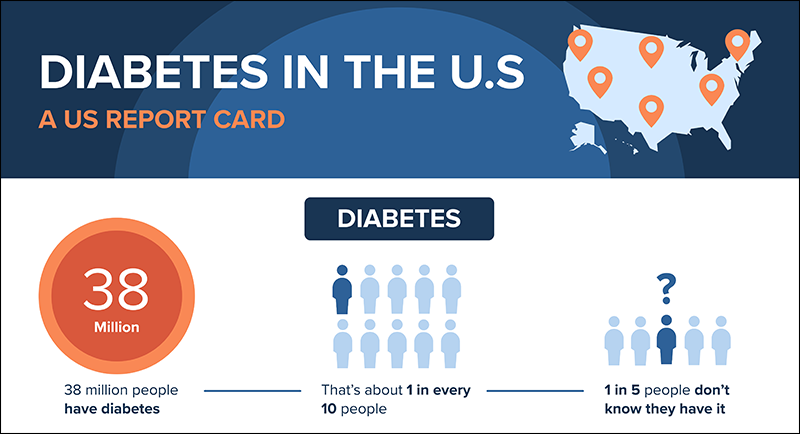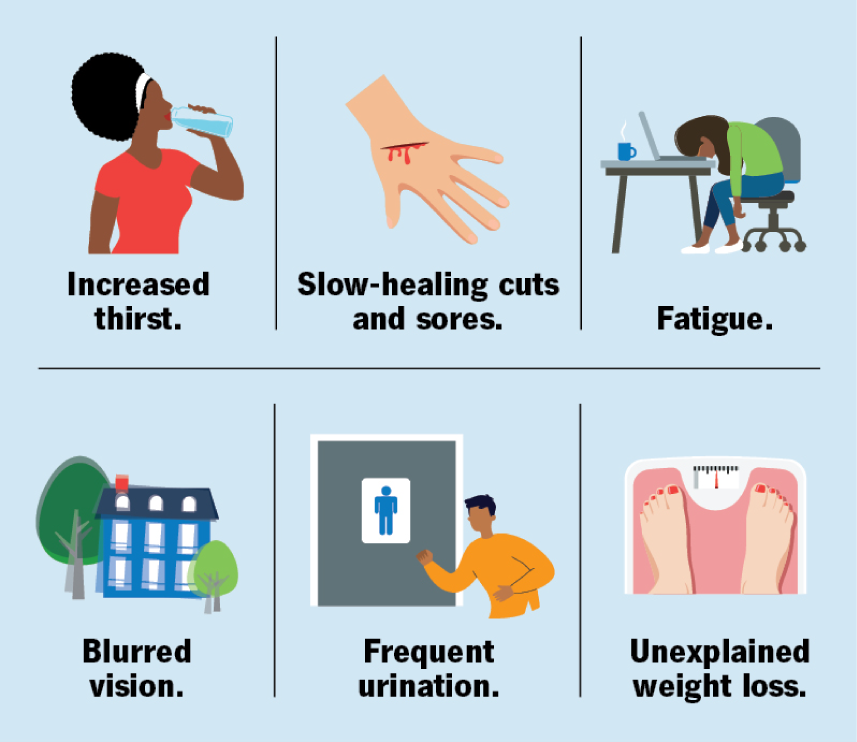During November’s Diabetes Awareness Month, we’re eager to provide reputable information about how diabetes can impact hearing health. Whether Type 1 or Type 2 forms, each uniquely affects the body, which may link to hearing capabilities.
Well-respected research indicates that diabetes and hearing loss are prevalent health concerns in the U.S. Studies show that hearing loss is twice as common in people with diabetes compared to those without. Even adults with prediabetes face a 30% higher rate of hearing loss than those with normal blood sugar levels. 1
Did you know…

Click to view more U.S. diabetes statistics
When blood sugar levels remain high or fluctuate frequently, the inner ear’s small blood vessels and nerves can become damaged. This may lead to gradual hearing loss, a change that often goes unnoticed until it begins to notably degrade communication wellness and quality of life.
Since recognizing diabetes’ early warning signs is key to preventing complications, here are some typical symptoms to watch for:
Understanding Type 1 and Type 2 diabetes, as well as other forms, should motivate protecting your overall wellness and, by extension, healthy hearing.
Type 1
An autoimmune condition in which the body stops producing insulin, often diagnosed in childhood or early adulthood. Careful glucose management helps protect delicate blood vessels and nerves that support healthy hearing.
Type 2
The most common form of diabetes typically develops in adulthood as a result of insulin resistance and lifestyle habits. Over time, even mild cases can impact circulation, increasing risks of gradual hearing changes.
Gestational
A temporary condition that develops during pregnancy and usually resolves after delivery. Going forward, it can still affect circulation and nerve health important for hearing, while increasing the mother’s long-term risk for Type 2 diabetes.
Before diabetes complications harm your hearing, early awareness and preventative care can reduce risks. Regular hearing evaluations will identify subtle changes early, empowering you to take action before they interfere with activities of daily living.
Small Steps Toward Better Hearing
- Keep your blood sugar within target range
- Stay active to support healthy circulation
- Maintain a balanced, nutrient-rich diet to support overall health and hearing
- Schedule routine hearing tests, especially if you live with diabetes or prediabetes
While patients often learn about diabetes through their primary care providers, endocrinologists, eye doctors, or podiatrists, too few discuss it with their hearing care professionals.
No matter where you are in your diabetes journey, getting your hearing checked will ensure you best experience Joys of Hearing this holiday season and beyond. As your devoted advocates, we Give Thanks for all opportunities to be of service!
1 https://diabetes.org/about-diabetes/complications/hearing-loss/diabetes-and-hearing-loss


